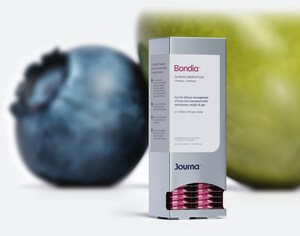CAMBRIDGE, Mass., Dec. 15, 2021 /PRNewswire/ -- Solarea Bio, a startup company dedicated to delivering healthcare products derived from the microbiome of fresh produce announces the publication of some of their core research in Scientific Reports, a Nature Portfolio journal. This pilot study describes the microbial diversity known as the "Edible Plant Microbiota" in four commonly consumed items: tomatoes, dried figs, brined olives, and spinach. Using metagenomics encompassing the entire gene repertoire of the microbial community, the team found many relevant functionalities that can be beneficial in human health and nutrition. "There is so much we don't know about the microbes we consume with fresh fruits and vegetables that we are just beginning to understand and it is fascinating to observe their large diversity," said Dr. Juliana Soto-Giron, Bioinformatics lead at Solarea and first author.
The paper uncovered a high diversity of Lactobacillus species in brined green olives, many of them with the ability to degrade plant fibers, tolerate environmental stresses, and exhibit immunological features that can make them attractive as probiotics. Also, there was a high degree of species diversity showing that the complexity of this microbiota is large and comparable to other samples and habitats. "We're excited about the work we've published with a small glimpse into our database and the potential to continue to expand our platform for product discovery and development," said Dr. Gerardo V Toledo, Solarea's CEO and senior author. "One of the founding hypotheses of launching Solarea was harnessing the microbiota of crops to aid in the dietary management of inflammatory problems including postmenopausal bone loss, which is our leading program. With this work and in our product pipeline we see strong benefits to creating health products using the microbes from fruits and vegetables. We know there is a lot left to uncover as we have only seen the tip of the iceberg, but the existing databases generated are enabling us to develop differentiated products in several markets."
"The findings from the Solarea platform have so many important applications for our health," said Rachel Raymond, Chief Business Officer for Solarea. "Beyond menopause, we are developing products in other markets that also have the potential to improve the quality of life for many people. We see the possibility for this technology to apply to pharmaceutical development, animal health and agriculture. Other players in the space recognize the opportunity as well," she continued, referring to the recent announcement of Solarea's partnership with global nutrition leader ADM.
Dr. Toledo has dedicated his career to studying microbial diversity in many environments for biotech product development and said, "we're seeing a large extent of species diversity in this set of samples, and the level of intraspecific diversity or ecotypes mirrors what has been seen in the oceans with unicellular cyanobacteria," and continued, "it is staggering that we know a lot about the microbial diversity in extreme habitats but we don't know much about the microorganisms colonizing our food and their impact on health."
ABOUT SOLAREA:
Solarea Bio is a biotechnology company based in Cambridge, Mass. developing new microbiome-based solutions to some of the world's largest health problems. Solarea was founded in 2017 by a group of scientists and entrepreneurs eager to radically alter our understanding of the human microbiome and utilize its power to improve human health. Solarea's breakthrough came from the combined efforts of the company's co-founders who established a link between the discovery of an untapped source of microorganisms with probiotic potential in healthy foods, and their applications in inflammatory processes including the gut-musculoskeletal axis.
Media Contacts:
Rachel Raymond
Solarea Bio
[email protected]
SOURCE Solarea Bio

WANT YOUR COMPANY'S NEWS FEATURED ON PRNEWSWIRE.COM?
Newsrooms &
Influencers
Digital Media
Outlets
Journalists
Opted In






Share this article